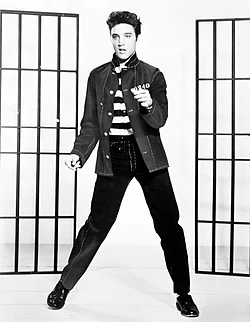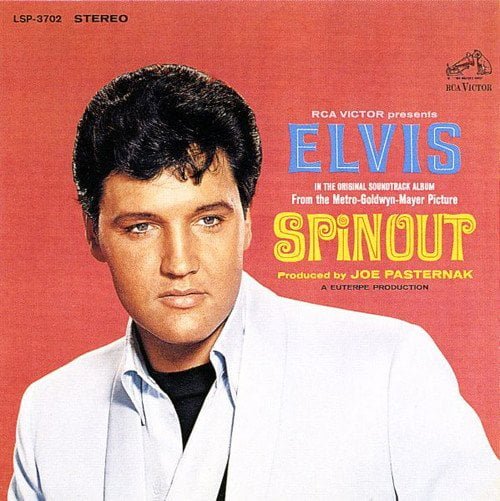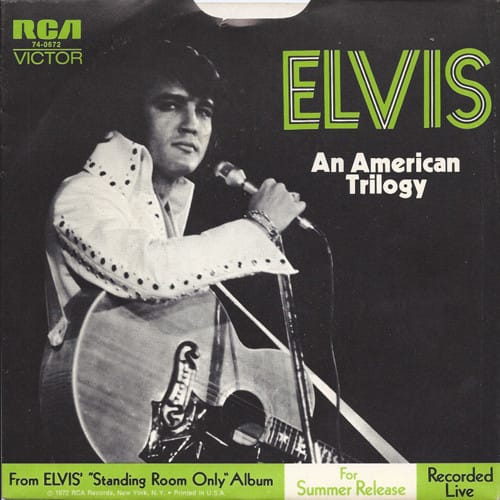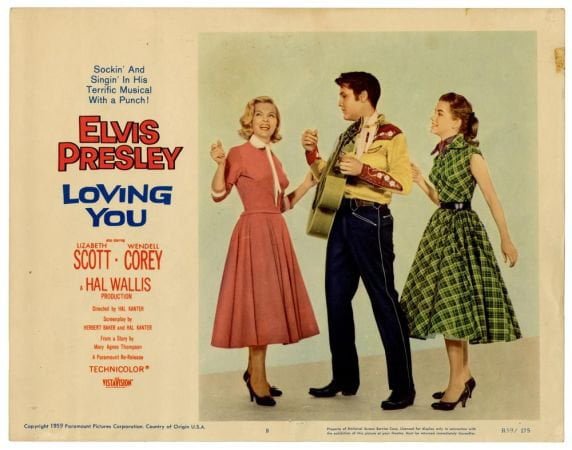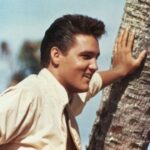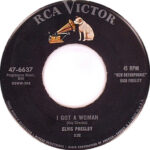KING CREOLE
– Elvis’ best movie role –
(Part 8)
By Mariusz Ogieglo
Recordings continued for almost the entire next day. ” Recording sessions are usually boring, unless the recording artist in the studio is a gentleman named Elvis Presley ,” remembered a Paramount photographer who, in January 1958, used his camera to document in detail the events taking place in the Radio Recorders building. ” The handsome music idol’s sessions are like loud parties attended by his colleagues, friends and, if they manage to sneak in, his fans.
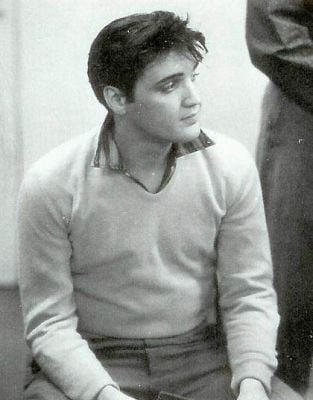
The session was scheduled to start at nine in the morning, just like the day before. However, the actual recordings were made only after the traditional jam sessions that Elvis used to arrange with musicians and members of his accompanying vocal groups immediately after arriving at the studio. ” Elvis usually began his sessions by walking up to every person who was present in the studio at the time – from the top musicians to the guy sweeping the floor – and greeting them personally ,” wrote Joe Esposito in his book Elvis. Straight Up.” “ When he did this, he would often sit down with the band members and talk to them for a while. To relax and get to know them again . Many times he also warmed up by singing gospel songs, usually at the piano, which was soon joined by members of the vocal group he was working with (in this case it was The Jordanaires quartet, author’s note). Only at the end did he start listening to numerous demo CDs, from which he selected the songs with which he would like to start recording .
On Thursday morning, January 16, 1958, the choice fell on “Dixieland Rock”, a joint composition by Claude DeMetrius and Fred Wise, which the band needed fourteen takes to record.
When the finished version was recorded on tape, the session took a slightly different, slower track, and Elvis, together with the musicians present in the studio – the same ones who accompanied him in the recordings the previous day, from then on focused on a few atmospheric ballads and light melodies in pop style.
Such as “Lover Doll”, with music by Abner Silver and lyrics by Sid Wayne, or “Don’t Ask Me Why” and “As Long As I Have You”. “ Well, there was a movie called ‘King Creole’ for which I wrote the songs ‘Crawfish’, ‘Don’t Ask Me Why’ and ‘Ask Long As I Have You.’ These were my favorite songs ,” admitted their co-creator and author of the music, Ben Weisman, in one of the interviews.
At the end of the session, several takes on the school anthem “Steadfast, Loyal And True” written by Jerry Leiber and Mike Stoller were recorded. ” It was supposed to be one of those songs intended for real, noble American teenagers ,” explained Jerry Leiber. ” This is what we received from the boss. I think it was Hal Wallis at the time . Mike Stoller added: “ Another one of our songs, ‘Steadfast, Loyal And True,’ was a high school alma mater song. I recently heard her acapella version and thought it was lovely. I really liked it .”
It should be emphasized that the solo performance mentioned by the composer was recorded only on February 11, 1958, at the Paramount Soundstage. The January 16 version, arranged for vocals and piano, as well as the two film versions of the ballad “As Long As I Have You”, were not used in the film or on the soundtrack album at that time. The RCA label released them officially only after Elvis’ death.
The rest of the songs for the newly created Paramount Pictures production were recorded during subsequent recording sessions organized during a break between filming.

The first one took place just over a week later, on January 23, 1958.
As before, the recordings took place in the Radio Recorders studio under the supervision of the label’s representative, Walter Scharf, and two experienced sound engineers, Thorne Nogar and Wally Kamin.
There were only minor changes in the line-up of musicians – Elmer Schmeider, who had previously played trombone, was replaced by Warren Smith, Bernie Mattinson played drums and Hilmer J. “Tiny” Timbrell played rhythm guitar.
In a few hours, Elvis recorded only two songs – another version of “King Creole” and the sensually swinging “Young Dreams” by Martin Kalmanoff and Aaron Schroeder.
However, several later biographers of the singer and researchers of his work, citing studio documentation, claimed that in addition to the above-mentioned titles, Elvis also tried two other compositions on that day, unrelated to the film – “My Wish Come True” and “Doncha’ Think It’s Time” “.
However, there is no certainty or any evidence (e.g. in the form of preserved recordings) that this was the case. The fact is that, apart from Presley, Lilane Montevecchi, who was working on the song “Banana” that day, was also present in the studio.
The last recordings for the film “King Creole” were made only on February 11, 1958. This time in the Paramount Pictures sound hall in Hollywood. “ Elvis didn’t just dislike the size of the soundstage. He also hated the whole engineering process we went through when making the recordings ,” guitarist Scotty Moore explained in his book. “ In the studio you could say, ‘OK, let’s do a take,’ and then turn on the tape recorder and start singing. In the sound hall, we had to wait until everything was prepared. The engineer in the control room was telling people in the studio, ‘OK, we’re recording.’ And the countdown began. Everything had a number there. And there was a guy in the soundstage who had to do something. It happened that we talked for two or three minutes before everything was tied up and ready for work .
The primary goal of this February session was to record the song “Danny” by Fred Wise and Ben Weisman, which for a moment even served as an alternative to “King Creole” by Jerry Leiber and Mike Stoller. ” I had a funny story that happened to me while working on ‘King Creole,’ ” Ben Weisman remembered. ” ‘King Creole’ functioned as ‘Danny’ for a while. It was also the title of a song I wrote for Elvis. However, when it was decided to retitle the film ‘King Creole’, ‘Danny’ was omitted entirely.”
The song was released only a year after Elvis’ death, in November 1978, on the LP “A Legendary Performer Volume 3”.
Information provided by EP Promised Land (Poland) , Mariusz Ogieglo http://www.elvispromisedland.pl/
If you want to visit more articles about the life of Elvis Presley, enter the following Elvis Radio 24h link: https://elvisradio24h.com/tag/articles Thanks TCB ?
We remind you that you can also listen to Elvis Radio 24 hours on your mobile phone by downloading our free applications for Android in the Play Store ? https://play.google.com/store/apps/details?id=com.icreo.elvisradio24h1, and for iPhone in your Apple Store ? https://apps.apple.com/app/elvis-radio-24h/id6444257119. Thank you very much!!…
